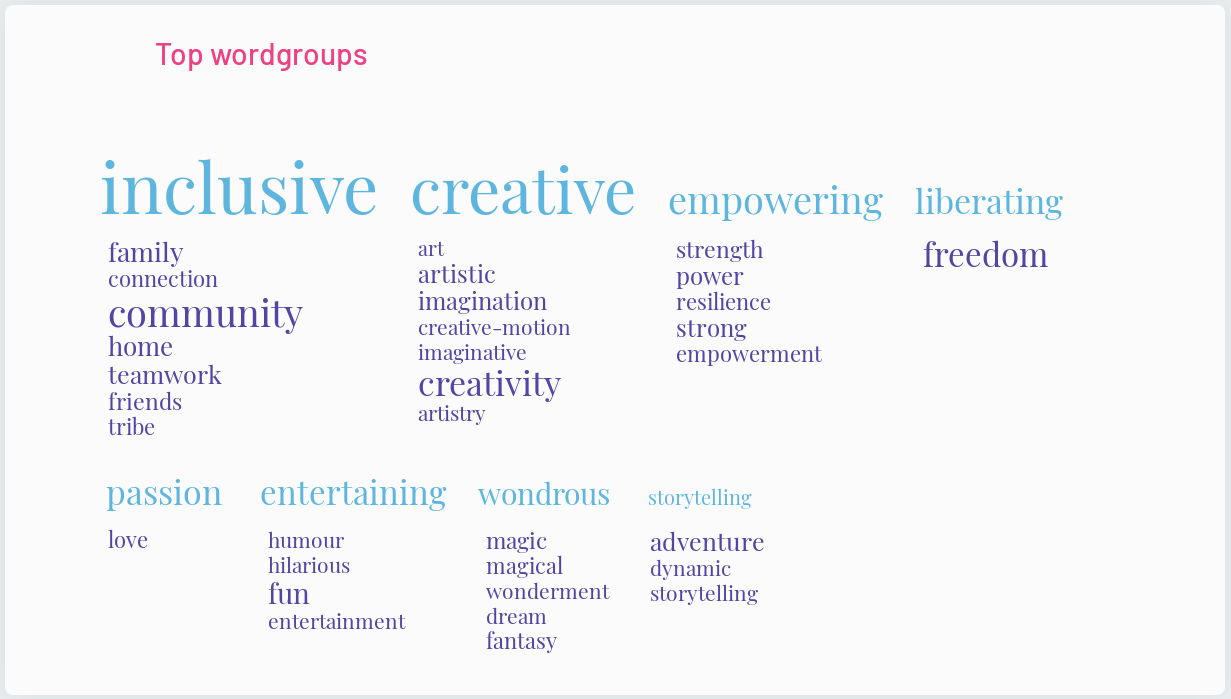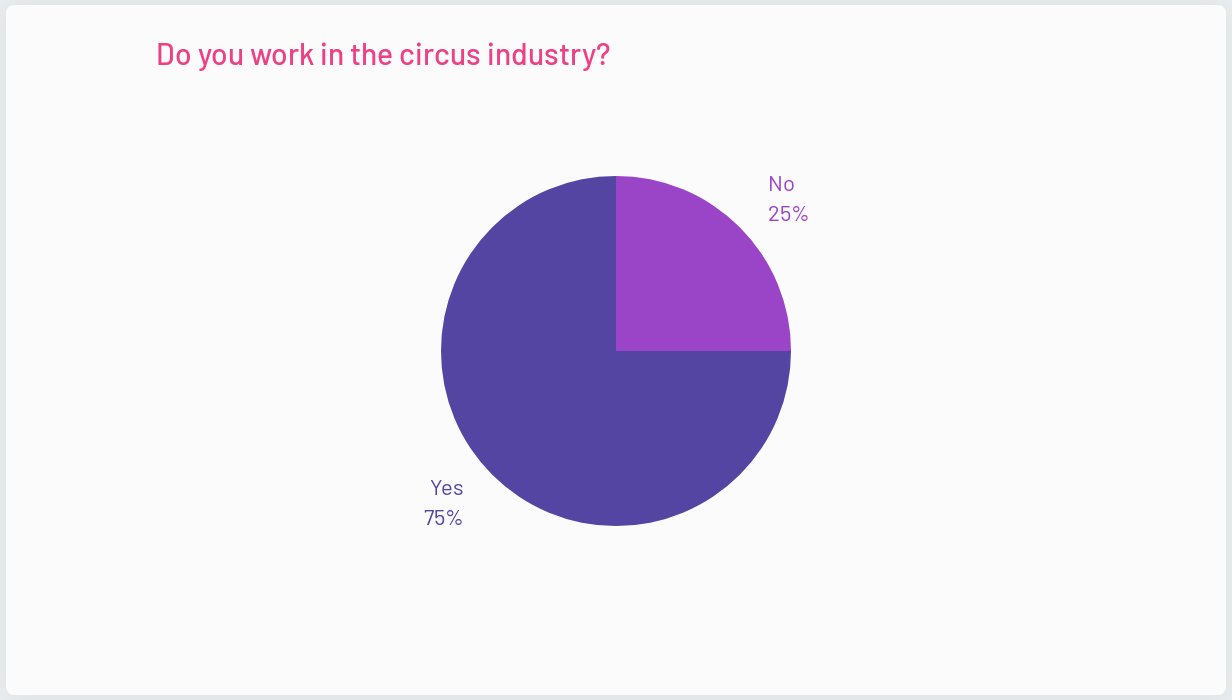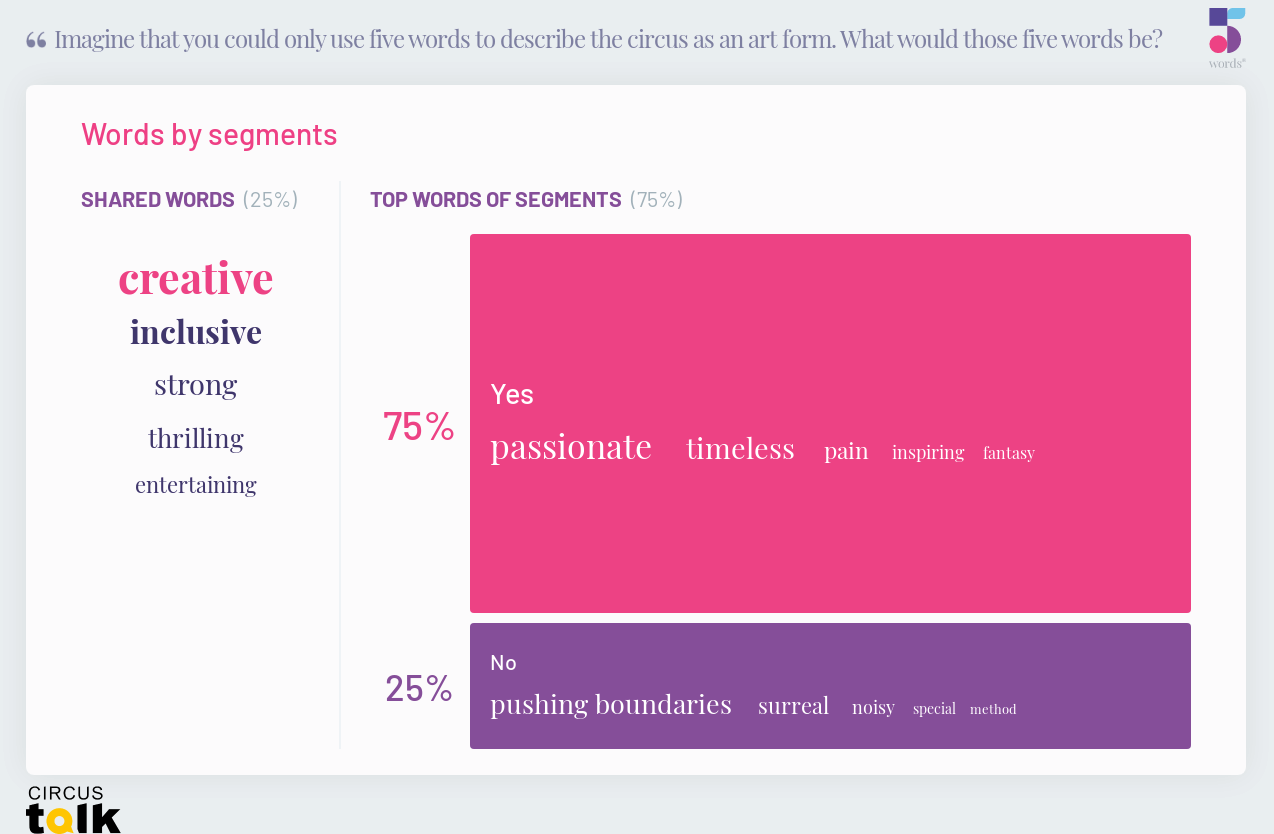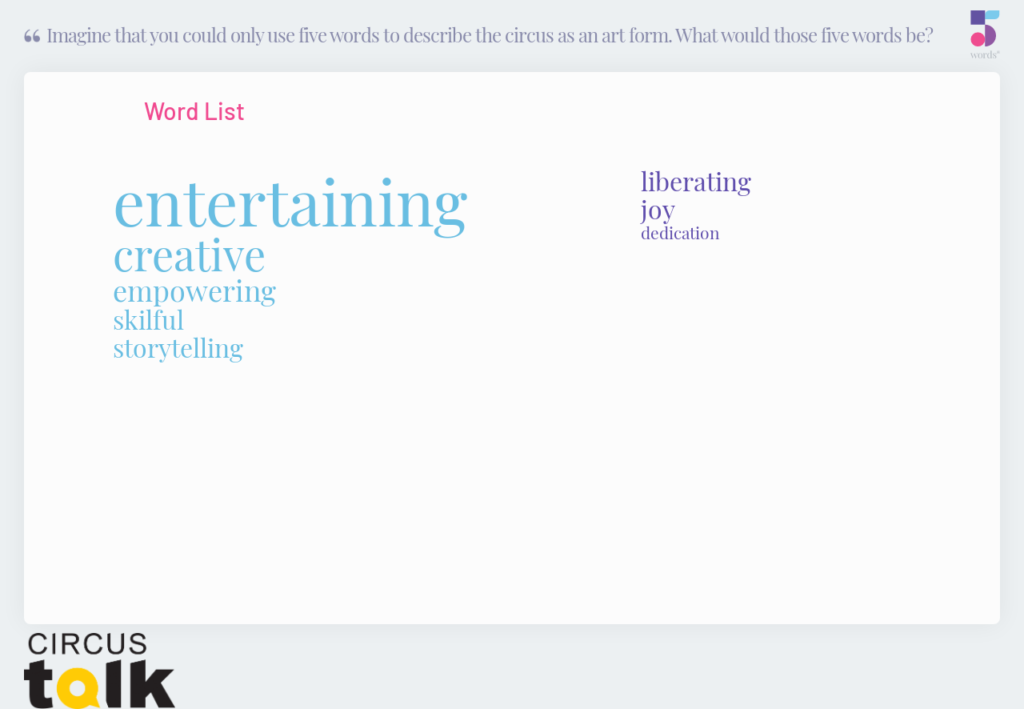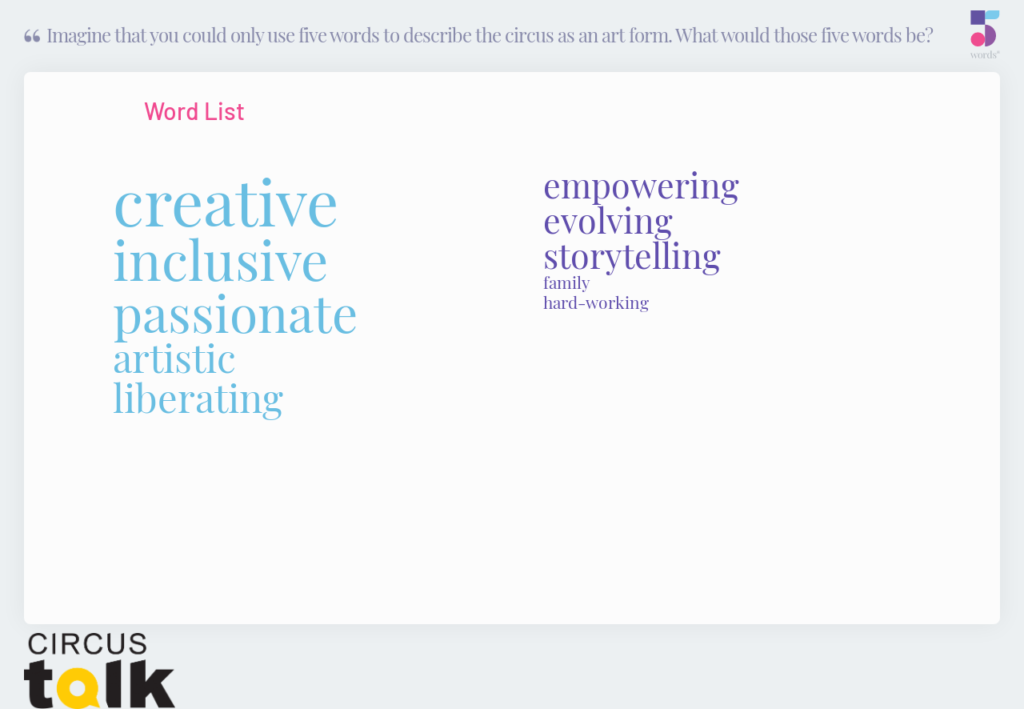Can You Describe Circus in 5 Words?
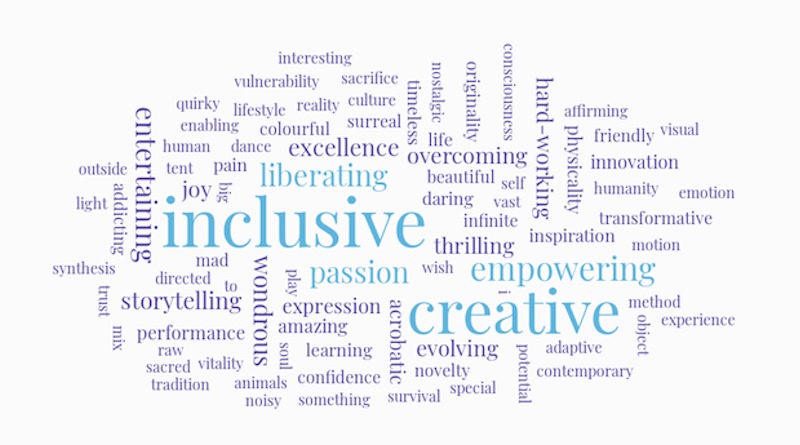
It is difficult to sum up a whole art form in 500 words, let alone 5, but by streamlining our concepts, it can lead to some surprising insights about the circus sector. That is the idea we had when we decided to try the new initiative 5-Words, a website meant to help public speakers, educators and business people by compounding the visual data around a concept, using pie charts and word clouds, which are always the most pleasing infographics to behold. We asked 5-Words how a tool like this could be used by artists and circus companies to understand their business or audience better.
Zsofia Hornyai, head of Marketing at 5-Words replied, “Circus companies and artists can benefit from 5-WORDS in their internal and external communication and decision-making. Companies that use 5-WORDS enjoy running quick and fun surveys, and they can utilize direct feedback and audience insights.”
In an effort to distinguish the differences between various peoples’ concept of circus, CircusTalk asked an international audience the simple question: “What is circus? Imagine that you could only use 5 words to describe circus as an art form. What would those 5 words be?” The results are as eye-opening as they are pleasing:
In an article published recently on 5-words discussing the data, Hornyai says “Do professionals have insights different from the laymen? Naturally, yes. If we exclude the 5 most common answers (that both segments, professionals and spectators shared) we can see that the words ‘passionate’, ‘hard-working’ and ‘evolving’ were exclusive to people who work in the industry.”
What surprised us about the response? How is this information valuable for us? The affirming message of the data is not entirely surprising, after all, circus is often lauded as a joyous and expansive means of expression, especially by circus professionals–but what is interesting is that not many of the answers had negative connotations, which indicates that the majority of people, professionals and non-industry members, have positive impressions of circus as an art form, a fact that could be of interest to government arts funding bodies around the world.
It’s not too late–tell us below in the comments what your 5 words are to describe circus as an art form!
All infographics provided courtesy of 5-Words
Editor's Note: At StageLync, an international platform for the performing arts, we celebrate the diversity of our writers' backgrounds. We recognize and support their choice to use either American or British English in their articles, respecting their individual preferences and origins. This policy allows us to embrace a wide range of linguistic expressions, enriching our content and reflecting the global nature of our community.
🎧 Join us on the StageLync Podcast for inspiring stories from the world of performing arts! Tune in to hear from the creative minds who bring magic to life, both onstage and behind the scenes. 🎙️ 👉 Listen now!
